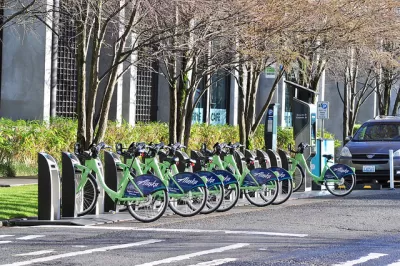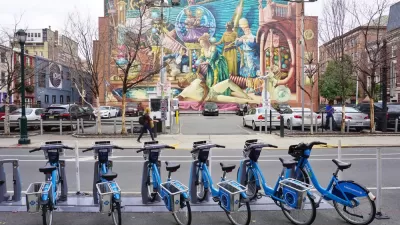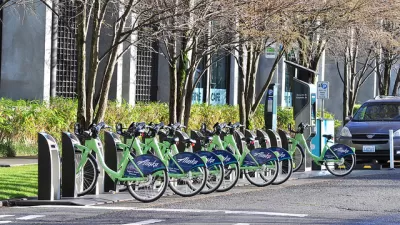While bikeshare garners a lot of attention from the white and wealthy, it is a less obvious choice for low-income communities. Difficulties include weather, time constraints, and overall demand for non-auto modes.

Bikeshare faces a demographic crisis. Often a success where locals are wealthy, it has failed to take root in poorer communities of color, where a greater proportion of bike commuters live. "This is a glaring issue, critics say, especially in places where public money is being used to help bike share systems break even."
Despite efforts by cities like Philadelphia to locate bikeshare stations in poor neighborhoods and allow payment by cash, the system has yet to catch on fully.
Reasons for this disparity coincide with more general transportation challenges low-income neighborhoods face. They include:
- Low-income bike commuters don't necessarily prefer biking, they just can't afford a car.
- Bikeshare is only reliable when the racks contain bikes: if they're all being used, it could mean showing up to work late or not at all.
- In a similar vein, cycling to work (though possible) is less attractive in bad weather. Wealthy bikeshare users could probably choose to drive, but a low-income person solely dependent on bikeshare could not.
FULL STORY: Bike share users are mostly rich and white. Here's why that's hard to change.

Maui's Vacation Rental Debate Turns Ugly
Verbal attacks, misinformation campaigns and fistfights plague a high-stakes debate to convert thousands of vacation rentals into long-term housing.

Planetizen Federal Action Tracker
A weekly monitor of how Trump’s orders and actions are impacting planners and planning in America.

In Urban Planning, AI Prompting Could be the New Design Thinking
Creativity has long been key to great urban design. What if we see AI as our new creative partner?

King County Supportive Housing Program Offers Hope for Unhoused Residents
The county is taking a ‘Housing First’ approach that prioritizes getting people into housing, then offering wraparound supportive services.

Researchers Use AI to Get Clearer Picture of US Housing
Analysts are using artificial intelligence to supercharge their research by allowing them to comb through data faster. Though these AI tools can be error prone, they save time and housing researchers are optimistic about the future.

Making Shared Micromobility More Inclusive
Cities and shared mobility system operators can do more to include people with disabilities in planning and operations, per a new report.
Urban Design for Planners 1: Software Tools
This six-course series explores essential urban design concepts using open source software and equips planners with the tools they need to participate fully in the urban design process.
Planning for Universal Design
Learn the tools for implementing Universal Design in planning regulations.
planning NEXT
Appalachian Highlands Housing Partners
Mpact (founded as Rail~Volution)
City of Camden Redevelopment Agency
City of Astoria
City of Portland
City of Laramie





























